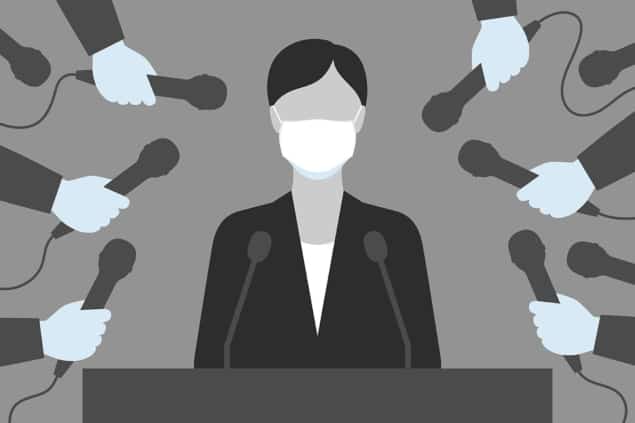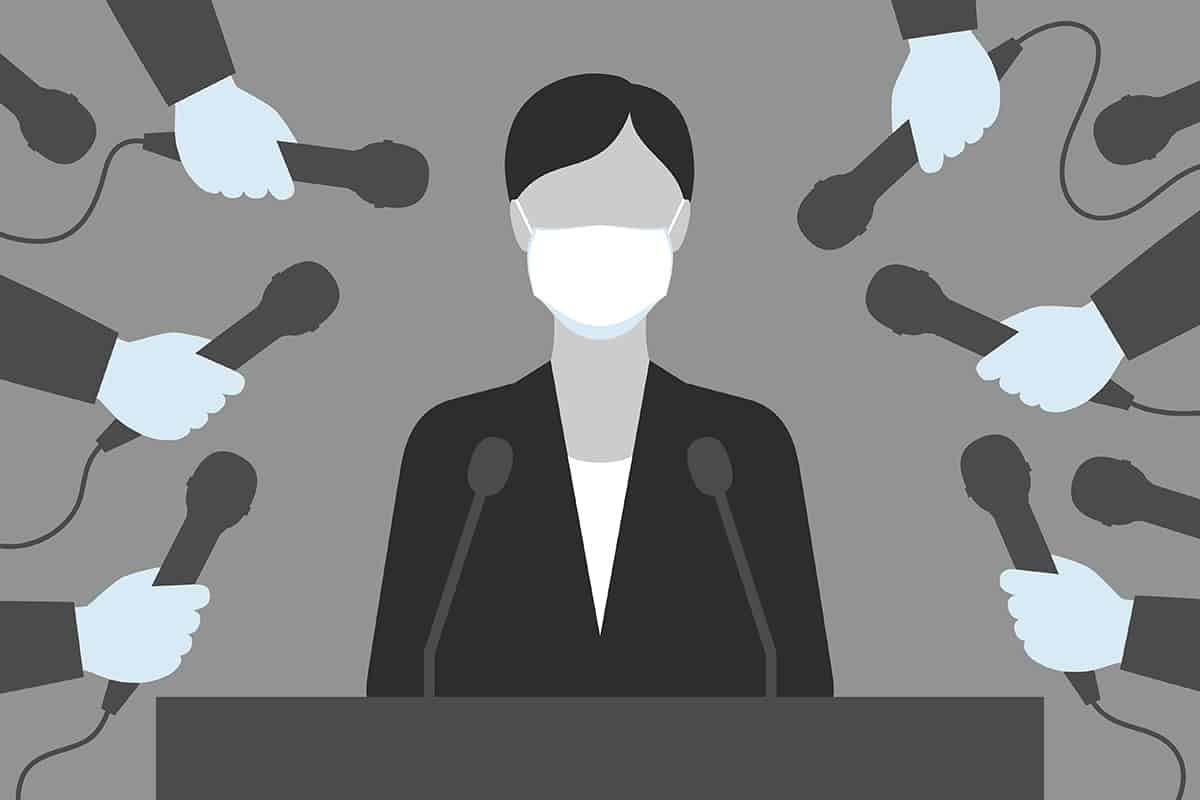The COVID-19 pandemic has underlined why the authority of science is so important – and how it’s so easy to lose. Robert P Crease explains
 Eons ago, we are told, the Flood nearly wiped out the human species, sparing only the tiny handful of people who had prepared themselves. To my mind, COVID-19 is the 21st-century equivalent of the Flood. It’s a global disaster that has killed hundreds of thousands of people, yet also a lesson about the need to prepare for future threats.
Eons ago, we are told, the Flood nearly wiped out the human species, sparing only the tiny handful of people who had prepared themselves. To my mind, COVID-19 is the 21st-century equivalent of the Flood. It’s a global disaster that has killed hundreds of thousands of people, yet also a lesson about the need to prepare for future threats.
These days we face a wider variety of existential threats than in biblical times, including air and water pollution, climate change and rising seas. We have more technologically advanced means to cope with them, such as medicines, vaccines and new energy sources. We also generally assume the responsibility, for both practical and moral reasons, to employ these means to protect not just our immediate families but the entire human species as well.
Still, 21st-century humans face new and staggering challenges when it comes to using those means. Noah had a direct communication channel with God and an unquestioned patriarchal authority, which let him convey the impending danger to his family without disbelief. That divine link also let him marshall and apply the resources needed to build the boat that allowed him and his companions, literally, to weather the storm.
To cope with existential threats, we have to rely on the authority of people with special training – “experts”, we call them.
The 21st century has no Noah, and no God warning us of looming disasters. To cope with existential threats, we have to rely on the authority of people with special training to identify, develop and apply the right tools – “experts”, we call them. And when we talk about the “authority of science”, we mean the will to defer to those experts about technical matters that we don’t understand in situations where we are vulnerable.
Flood control
As I argued in my recent book The Workshop and the World, the authority of science is not something that comes naturally to humans, but has to be generated and maintained. Such authority is fragile, and only happens in an atmosphere that has been carefully nurtured by three main things: political leadership, institutional consistency and communal trust. The silver lining of COVID-19 is that the reaction to it illustrates by negative example why these three factors are important.
Let’s start with political leadership. Fostering the authority of science requires leaders who demonstrate their commitment to defer to experts. Donald Trump is a prime negative example. The 45th US president has called the COVID-19 pandemic a hoax. He’s said it will soon go away. He’s looked for scapegoats, left counter-measures to others, and dismantled preparations that his predecessors had put in place. He’s even advised using unsupported remedies or taking unproven ones – actions that not only may harm his health but also undermine the authority of expert advice that others need to stay healthy themselves.
The same is true of leaders who flout their own lockdown rules or don’t wear facemasks when required or advised. Trump once retweeted a comment that wearing masks is a “symbolic” act, which dissolves what might be viewed as an act of commitment into mere theatrics. He is still more proactive in sabotaging scientific authority by insulting and even firing scientists, and appointing those without scientific credentials to oversee scientific activity.
Another basic element for maintaining scientific authority is to have reliable, consistent and transparent scientific institutions. The credibility of scientific literature was hurt by retractions in The Lancet and the New England Journal of Medicine of papers reporting the results of coronavirus-related research. The World Health Organization had to retract a claim about the incidence of asymptotic transmission of coronavirus. The US Centers for Disease Control and Prevention botched coronavirus test kits, flip-flopped its evaluation of mask-wearing, and mixed up the results of certain tests. In the UK, the government’s Scientific Advisory Group on Emergencies (SAGE) was criticized for lacking transparency.

This is the critical point
True, the ability to change one’s conclusions based on new evidence or reanalysis is critical to the strength and reliability of science. Yet doing so because of mistaken procedures or without transparency encourages suspicions that statements from scientific institutions are motivated by politics or incompetence. Poor communication makes institutions appear opaque and their operations mysterious, making it easier for politicians to dismiss their advice either by saying “I’m not a scientist” or by blithely claiming “I’m following ‘the science’” while doing nothing of the sort. While the latter is somewhat more commendable, it also undermines scientific authority.
Finally, scientific authority can only flourish in communities that value health and welfare rather than, say, glory, wealth and self-advancement. Such communities must also be willing to make rather than ignore decisions about how to justly allocate limited resources.
It is tempting to blame the lack of scientific authority on shameless politicians, bad institutions or selfish people.
It is tempting to blame the lack of scientific authority on shameless politicians, bad institutions or selfish people – or to think that such authority can be restored by fixing any one of these. None of these three pillars by itself will generate scientific authority; it is magical thinking to hope that, say, the next election will save us. Each pillar affects the others. Politicians who insult institutions or scientists hurt the authority of these and encourage community scepticism. Institutions whose advice is inconsistent encourage individuals and politicians to discount their advice. Desire for short-term gain rather than long-term security provides the incentive for politicians and institutions to do the same.
The critical point
I know this sounds religious, but think metaphorically of the pandemic as God’s lesson: “Let me teach 21st-century humans by throwing a pandemic onto Earth and installing the people least able to handle it as our leaders. Will humans get it?” The moral is that the inhabitants of a globalized and scientifically and technologically dependent world must cultivate an atmosphere in which scientific authority can exist or they will perish. No more social distancing, extinction next time.
